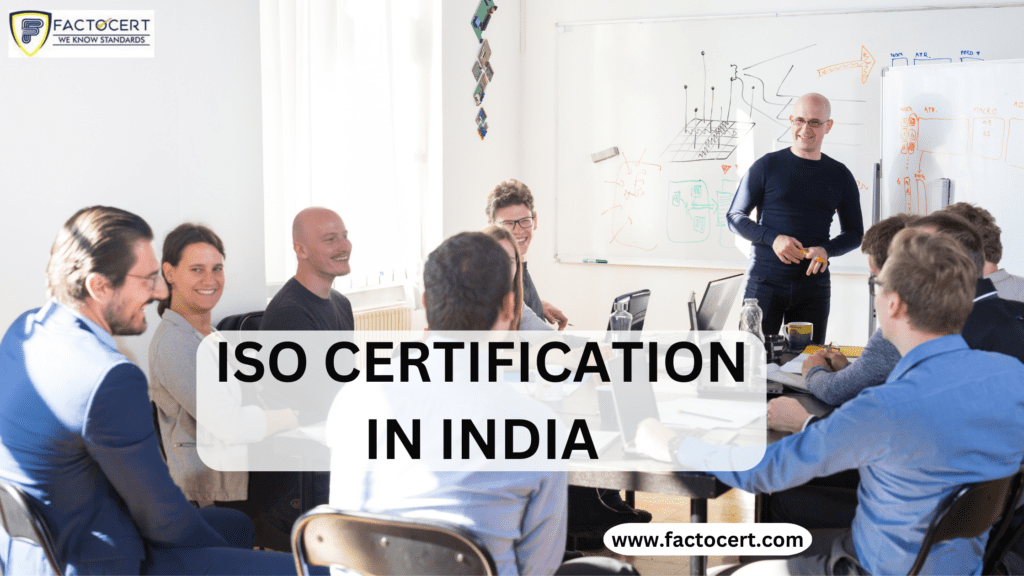Obtaining ISO Certification in India requires selecting a certification body that has been approved by the India National Certification Board (INAB), setting up regulatory-compliant management systems, educating personnel, conducting internal audits, and selecting the appropriate standard (e.g., ISO 9001 for quality management). The selected authority then conducts a certification audit to assess conformity. After requirements are met, the certifying body grants ISO certification in India. Regular surveillance inspections and continuous improvement are used to ensure upkeep. By confirming that a company complies with globally recognised standards, a certification boosts its legitimacy and competitiveness in the Indian market.
ISO Certification in India in the Medical Field:
ISO Certification Industry-specific ISO requirements must be followed in order to obtain ISO Certification in India for the medical sector. Several ISO standards are crucial for medical devices and related services. Some of the most significant ISO standards that apply to the medical industry are listed below:
ISO 13485: Medical Device Quality Management System (QMS):
This standard lays forth the requirements that companies that create quality management systems and design, develop, produce, install, and service medical equipment must satisfy.
Controlling the Risk Associated with Medical Devices: ISO 14971
In order to effectively manage the risks associated with medical devices, this standard places a strong emphasis on risk assessment, risk computation, and hazard identification during different phases of the device’s lifetime.
Quality Management System (QMS): ISO 9001
ISO 13485 is specific to medical equipment, although ISO 9001 is a more all-encompassing QMS standard that businesses in the medical sector may find useful. It provides a framework for quality management procedures.
Information Security Management System Creation, Implementation, Maintenance, and Continuous Improvement Requirements for Medical Organisations Handling Sensitive Patient Data are outlined in ISO 27001: Information Security Management System.
The following are the typical steps for medical industry to obtain ISO certification in India:
Understand the requirements:
Find out if the medical goods or services you provide are specifically subject to ISO standards.
Put QMS into Practise:
Establish and implement an ISO-compliant quality management system, or one that complies with other standards of your choosing.
Teaching and Documentation:
Procedures and processes should be recorded, and employees should get training in compliance with the regulations.
Internal Examinations:
To ensure that your system conforms with ISO requirements, conduct internal audits.
In order to certify, examine:
Choose a certifying body that has been approved by the relevant authorities. They will conduct an audit to determine whether you adhere to the relevant ISO standard or standards.
Remedial Actions and Improvements:
Address any discrepancies discovered throughout the audit and maintain an updated QMS.
It’s important to keep in mind that obtaining ISO Certification in India is an expensive process that necessitates a commitment to meeting the standards’ requirements. Consulting with experts or hiring a consultant that understands ISO Certification in India for the healthcare industry could be beneficial.
Several crucial procedures are included in ISO Certification in India process:
Choosing the Applicable ISO Standard:
Choose the ISO standard (such as ISO 9001 for quality management or ISO 14001 for environmental management) that is applicable to your industry.
Idea and Implementation:
Construct and implement policies and processes that satisfy the needs of your business and the specified ISO standard.
Internal Instruction and Preparedness:
Make sure that all the documentation and processes are in place to fulfil the requirements. Staff employees should also receive ISO standard training.
Internal Evaluation
Conduct an internal audit to assess the effectiveness of your systems and their compliance with the chosen ISO standard.
Select an Authorised Certification Body:
Choose an certified body that has been certified by the India NABO or other notable organisations.
To become certified, look through:
To evaluate your company’s ISO compliance, ask the chosen certification body to conduct a formal audit.
Issued with authentication:
The certifying body awards the ISO Certification in India after the audit, demonstrating that your business conforms with international standards.
Continuous Improvement
Maintain process improvement and evaluation to guarantee compliance. Participate in surveillance audits frequently in order to maintain the validity of your Certification .
Why Select Factocert in India for ISO Certification?
Factocert, one of the leading execution and consulting businesses, assists your business in implementing best practises. Factocert offers services for third-party audits, verification, and application of international standards.
We were able to certify several troubled organisations by providing them with an international standard one-stop shop. We now own these groups.
customers who are ecstatic and completely happy with the fixes. If you’re considering applying the worldwide standard, please visit our website at www.factocert.com for assistance with less expensive ISO Certification in India prices.





